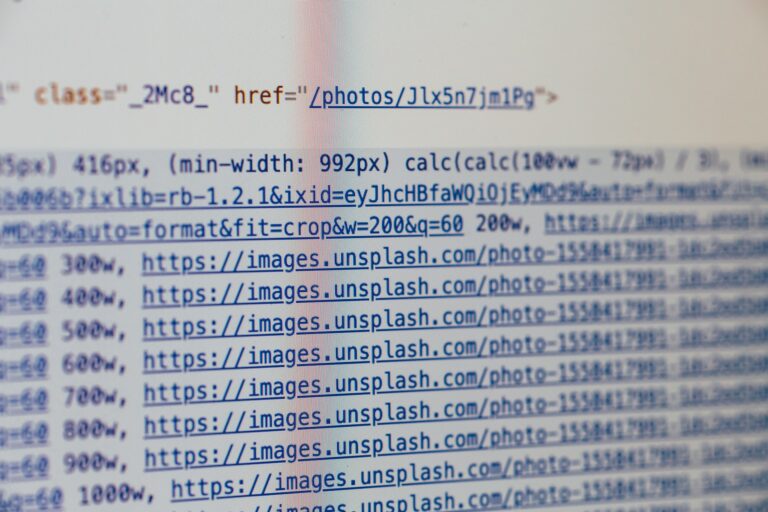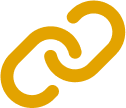
Web scraping is a method of data extraction from web pages. It entails accessing a collection of web pages, analyzing their code, and extracting datasets following predefined patterns or rules. Once extracted, data can be organized into a structured format, such as a database, for specific purposes, including price comparison, research, and developing marketing lists. This data supports informed decision-making, product development, and the identification of new opportunities. Web scraping raises several legal issues, particularly in relation to intellectual property rights. The process might result in the extraction of data from websites, even when the rights in such data are vested in another. It is advisable to obtain authorization or provide proper credit to the original creator, acknowledging their work. The data collection process in web scraping can impact data protection rights. It is therefore crucial to balance the data collection process with data protection rights by ensuring regulatory compliance through relevant actions, including obtaining a justifiable legal basis.
Web scraping is a powerful method for collecting extensive data. In contrast, Application Programming Interfaces (APIs) provide a structured and official means of accessing data, they expose endpoints (URLs) that enable programs to request specific information. APIs are typically accompanied by documentation and may impose rate limits or require authentication. They offer a more reliable and respectful alternative to scraping with regard to the service provider.
Many websites offer APIs that simplify data extraction, acting like a direct pipeline to their information. These APIs can be a valuable resource, but it’s important to note that not all websites have them. Even if they do, the data might not be in the desired format. In these cases, it becomes necessary to collect data in a compliant form. However, it’s important to remember that ‘copying’ should be approached with caution when creating and sharing content online. You can’t simply republish someone else’s images or content as your own. While this may be permissible in some cases, one must obtain permission or provide proper credit to the original creator, acknowledging their work. To engage in compliant web scraping, it is essential to read and understand the website’s terms of service and/or relevant policies. This is because each site may have its own rules about web scraping. For instance, LinkedIn is known to have a firm policy against web scraping.In Nigeria, one of the few websites that prohibits web scraping is Nairaland, where a directive against scraping is typically displayed on its website. This article examines some of the legal issues concerning web scraping in Nigeria.
Under the Nigerian Law, a contractual relationship can be created between parties intending to engage in web scraping activities by outlining the scope, purpose, limitations, and legal compliance of the scraping activities, provided it does not contravene existing data protection laws, intellectual property rights, or the terms of service of the targeted websites.
Contractual liability may arise when a website’s terms and conditions explicitly prohibit web scraping and the commercialization of any information on the site. However, the burden of proof rests on the proprietor(s) of the website to establish that the applicable terms of use satisfy the elements for an enforceable contract under Nigerian law. Therefore, web scraping companies may face civil liability under various laws, including Nigeria’s data protection laws. This is because the processing infringes upon several principles of data protection law. Additionally, web scraping can potentially harm individuals. For example, personal data obtained through scraping may be exploited for targeted cyber-attacks, unwanted direct marketing, identity fraud, and the monitoring and profiling of individuals. Therefore, proprietors and social media platforms hosting publicly accessible personal data have data protection responsibilities to prevent third-party content scraping.
Companies engaging in web scraping may also be exposed to criminal liability under Nigeria’s Cybercrimes Act (the Act) 2024. The Act prohibits the unauthorized interception or modification of data within a computer system or network. If web scraping amounts to such ‘interception’ or ‘modification’, a crime can be said to have been committed under the Act. Offenders could be subject to fines and imprisonment.
Copyright law also plays a critical role in web scraping. It is essential to acknowledge that copyright violations can result in both civil and criminal liability for entities engaged in web scraping activities. Scraping a website for data typically involves making a copy of the data, rather than replicating the website’s structure or arrangement. Therefore, copyright protection of the database is less often relevant than Database Right. In terms of the website’s content, if the amount extracted constitutes all or a substantial part of a literary or artistic work on the website that is protected by copyright and is done without a license, then, under the relevant laws, this will infringe copyright in those works. To successfully pursue a claim of copyright infringement, the right holder must fulfill several critical criteria. First, the right holder must demonstrate that the datasets in question qualify as protected works under Nigerian copyright law. Specifically, these datasets must be classified as literary, artistic, musical, or audiovisual works, as well as sound recordings or broadcasts. This classification is vital, as copyright protection applies only to these recognized categories of creative works. The right holder must also establish that the datasets scraped from the website possess an original character. This requirement stipulates that a sufficient degree of intellectual effort or creativity must have been invested in the creation of the datasets. Compiling or collecting data alone does not suffice to warrant copyright protection under Nigerian legislation. Additionally, the protected datasets must be fixed in a tangible medium of expression. This condition necessitates that the works be recorded or stored in a manner that allows for their perception, reproduction, or communication, whether directly or through technological means. Without such fixation, the work cannot be subject to copyright protection. For the purpose of this article, data contained on a website can be said to be already fixated in a tangible medium of expression, the significance of this concept is paramount in discussions surrounding copyright law, as a work must be manifested in a tangible medium of expression to qualify for legal protection. The requirement of fixation stipulates that the work must be recorded in a stable form that is capable of being perceived, reproduced, or otherwise communicated for a duration that exceeds mere transience. It is crucial to underline that mere collections of data or simple compilations lacking originality or creative contribution do not qualify for copyright protection in Nigeria. Consequently, proprietors who seek to invoke copyright law must provide evidence that their datasets meet the specific criteria of originality, fixation, and classification as literary, artistic, musical, audiovisual works, sound recordings, or broadcasts.
In summary, to hold web scraping entities liable for copyright infringement pursuant to Nigerian law, rights holders must systematically demonstrate that the datasets (i) belong to a protected category of works, (ii) exhibit original creative effort, and (iii) are fixed in a medium that permits access or reproduction. Failure to establish any of these elements may result in the dismissal of copyright infringement claims. Overall, web scraping involves complex legal challenges that can be mitigated through various measures, including conducting thorough legal reviews before scraping, implementing measures to prevent the unlawful collection of personal information, and respecting website terms. Sanctions for web scraping may take the form of damages for breach of contract, breach of data privacy rights, tort damages, or criminal liability, particularly under Nigerian law, such as the Cybercrime Act 2024. Here, offenders are liable to fines, imprisonment, and intellectual property violations. In conclusion, web scraping in Nigeria presents unique opportunities and significant challenges. As digital transformation accelerates across the continent, the ability to gather and analyze data from various online sources can drive innovation and inform decision-making in several sectors.
However, legal and ethical considerations must be at the forefront of scraping efforts. With varying regulations across countries, including data protection laws and copyright protections, individuals and organizations must understand and comply with the specific legal frameworks in their jurisdictions. This includes respecting website terms and conditions and safeguarding personal information. Staying informed is crucial as the regulatory environment evolves, particularly in areas such as data protection and cybercrime. By prioritizing compliance and ethical practices, stakeholders can effectively leverage web scraping as a powerful tool while mitigating legal risks. With the right approach, web scraping can ultimately contribute to sustainable growth and innovation in Africa’s digital economy.
References
This credit may be in the form of a license within the context of intellectual property rights. Aderonke Alex Adedipe and Olawale Atanda’Intellectual Property Law In Nigeria,
 , Pavestones,accessed 18th August 2025
, Pavestones,accessed 18th August 2025Linkedin, Prohibited Softwares and Extensions,
 , accessed (7th August 2025).
, accessed (7th August 2025).Section 24, Nigeria Data Protection Act 2023
Section 6, Nigeria’s Cybercrimes Act, 2024.
David Wilkinson and Chloe Gastrell; Data Scraping:Intellectual Property Rights and Risks,
 , Evasheds Sutherland, accessed 21/8/2025
, Evasheds Sutherland, accessed 21/8/2025Section (2)1Copyright Act 2022.
UDEOJI, EWUZIE & UDEOJI: Interrogating the Concept of Originality and Fixation as Fundamental towards Achieving Copyright Protection in Nigeria’,
 , accessed 21/08/2025
, accessed 21/08/2025Section 1(2)(b) Copyright Act 2022
Olubunmi Abayomi-Olukunle & Adekunle Adewale, Is Web Scraping Illegal in Nigeria?'(Balogun Harold 2024)

- Part III, Cybercrimes Act, 2024
Subscribe To Our Newsletter

